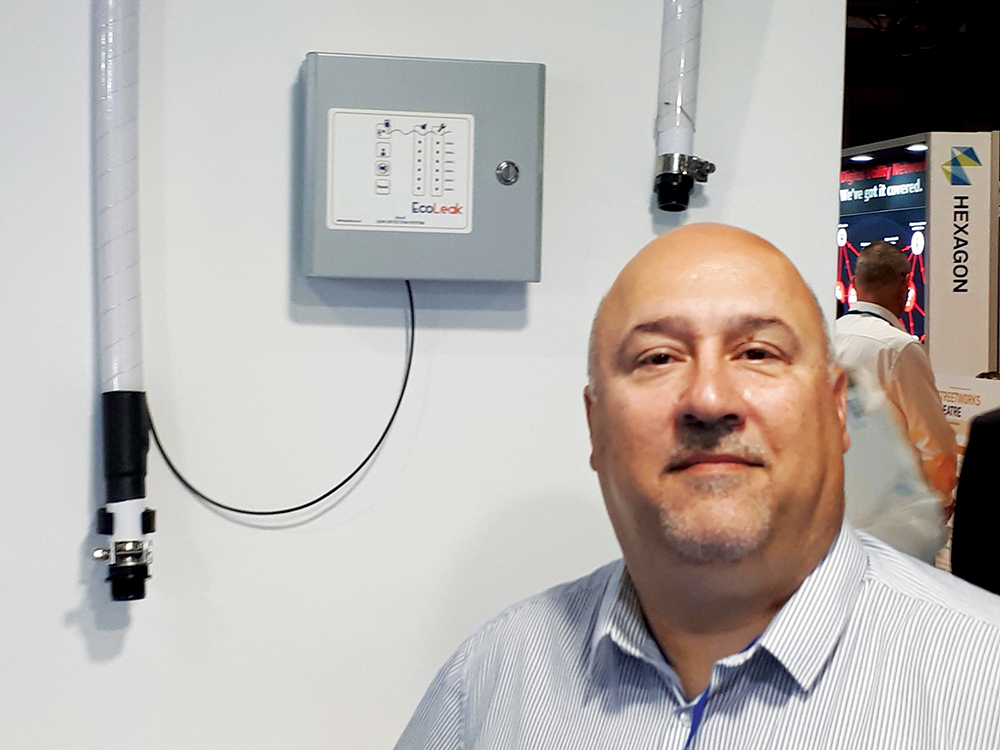In this issue of Water Industry Journal, we speak to Roger Attisha of FT Pipeline Systems about the challenges facing the industry in regard to the application of chemicals and how the industry is addressing them.
“Chemical processes are amongst the most safety-critical in the water industry, with health, safety and environmental concerns, uppermost in our minds, as they should be.
“Yet at the same time, the industry is under immense pressure to deliver better, more efficient services, that are environmentally sound and safety conscious, without passing the cost on to their customers,” explains Roger, “it is an extremely difficult balance to strike.
“Water companies are tasked with bringing about innovation in the industry, making the water supply safer and getting rid of waste efficiently and effectively, whilst achieving all of this within their budgetary constraints, in the context of climate change and an increasing population.”
To put things in perspective, the office of national statistics estimates that the UK population is 65.1 million, yet they project that by 2026, the population will pass the 70 million mark. More people, in turn means more housing and the supporting infrastructure and services that go hand-in hand with this, such as schools and hospitals, all of which will need a ready, safe supply of water to hand.
“Like other organisations that deliver the critical infrastructure, whether in the water sector or elsewhere, the difficulty in meeting this increasing demand is made all the more difficult by legacy issues, including an ageing infrastructure, the sheer vastness of the geographic areas they cover and their budgetary pressures.
“Bringing about innovation and making a change in terms of processes, technology or their infrastructure is no easy matter, their reservoirs for example remain the same size, yet some water companies are rising to the challenge and bringing about change in the industry.” observes Roger.
“At Yorkshire Water’s Rivelin Water Treatment Works, the works have been upgraded and made fit to meet the increasing demand by an investment that has included installing rigid PVC dual contained pipework for the suction work and flexible dual contained hose PVC for the discharge.
“Flexible dual contained hose, as the name suggests, can take a flexible route, going where ever it is needed, so the pipe work could be installed on different levels, going down into the basement and back up again, while in contrast, old pipe work relies on gravity, meaning chemicals can’t travel upwards.
“The combination of more modern dual contained hoses at Rivelin and other water treatments works, enables them to process water more efficiently, treating more water, more quickly – which is exactly what the industry requires, helping them to meet the increased demand.
“We are finding that more and more of the projects on which we work are focused on the upgrade or improvement of water treatment works – making them fit for the 21st Century, such as the Stoney Stanton treatment works in Leicestershire and the Heigham works in Norwich.”
Roger is well placed to advise on improvements to water treatment works, having over 30 years’ experience in the sector and being instrumental in setting up the Water Treatment division of FT Pipeline systems (FTPS). FTPS itself has over 35 years’ experience working with the water industry, providing pipes, field joint protection sleeves and stop tap replacement locking lids.
Their water treatment division specialises in dual containment systems for chemical dosing processes utilised in the water, waste water, sewage industries and elsewhere. One such product is PF-Detect, believed to be the first flexible dual contained hose with an integrated chemical leak detection system, giving water companies complete control in the rare event of a chemical leak, vastly reducing the risk to humans and the environment of chemical exposure.
“Reducing the environmental and health and safety risks of chemical dosing projects is a priority for the industry,” explains Roger, “and we are helping to address this in an industry where chemicals such as Ferric Sulphate, Caustic Soda, Poly-electrolyte and Sodium Hypochlorite are utilised.”
“Flexible dual containment systems such as PF-Detect are supple and light, yet endure,” explains Roger. “The system has far fewer joints than traditional pipes, with runs of up to 500 metres without a joint.
Colex International, a UK company based in Market Harborough, developed PF-Detect in close consultation with utility companies, listening to their market requirements and addressing them. Though PF-Detect has been available to the market for a mere 18 months it is currently under consideration, adopted, specified or in use by water companies including Severn Trent, Yorkshire, Thames, Anglia, Wessex and Southern Water, and it is now being rolled out globally, with customers in the US, Brazil and Australia, amongst other countries.
“For water companies wanting to upgrade their treatment works, yet reduce the whole project cost, a flexible dual containment system like PF-Detect, is an effective choice, reducing the carbon footprint, environmental risk and operator risk.”
rattisha@ftpipelinesystems.co.uk
www.ftpipelinesystems.co.uk





